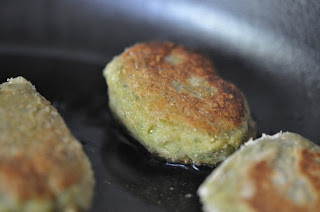Over the past year I have been trying to educate myself through some environmental community groups. I have been able to involve myself in two
Earth Carer courses,
Living Smart and an Earth Carers Kids course. One of the main messages that has really struck a chord with me has been looking at how we view waste. So much of it is to do with the word we use to describe the things we throw out.
Rubbish
Garbage
Trash
Waste
Junk
By looking at the things we no longer want as a '
resource', we are more likely to find another use for these. Whether it is food scraps, clothes or even electronics, think about who could use it again or how it could be used. It might be something as simple as getting a
compost or
bokashi bin up and running. In an article in the most recent
G Mag, there was a break-down of a household rubbish bin. It is amazing that according to their statistics, which are from the
Environment Protection and Heritage Council, nearly half of the contents of a household bin is made up of food and garden waste. These products can be dealt with at a household level rather than being thrown away and destined for
landfill. I am constantly amazed with how little rubbish goes in our bin since we started composting,
worm farming and running a bokashi. I know it is a bit of overkill with all three but I really wanted to try them all.
There are so many ways to get rid of things you no longer need. Another favourite in our house is
Freecycle. This is a great way to re-house something that is in working order but is just no longer of use to you. I have even managed to find a home for a microwave that wasn't working. I made it clear in my post that the turntable wasn't turning and the guy who took it emailed me back to tell me that he managed to repair it. He liked to tinker with things and he generally puts the fixed items back up on Freecycle so someone else can get use of it.
On a recent trip away we couldn't find
any egg cups but some small jars made
fabulous substitutes.
Before the days of council rubbish collections, it was up to householder to dispose of their own rubbish. Food was often buried in the backyard or fed to the chooks or other animals. Things were repaired rather than being replaced. It was also rare for things to be single-use. Walking through a shopping centre food hall nowadays makes me feel quite anxious looking at all of the single use items, such as cutlery and cups, that will inevitably make their way to the tip.
A change in thinking is needed to make more of the things that we use. It has made me think more about where a product has come from. how I am going to get the most use out of it and where it will go when I have finished with it.
We can all be resource rescuers.
Take care
























